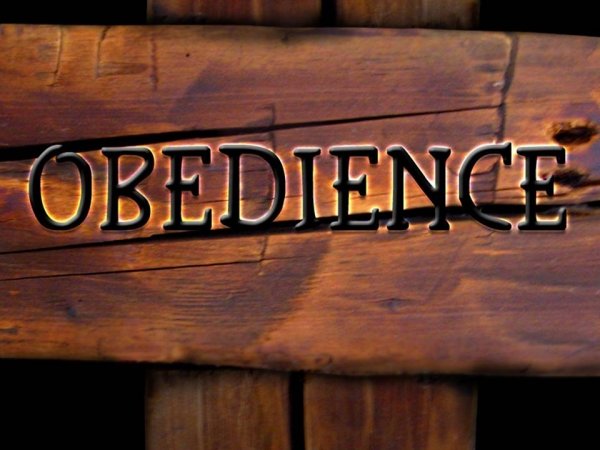Question
Dear Gramps
I’m so thankful that I have you. You’re such a help in my life. I don’t know if I will get a response but I was just wanting to know. How big are the consequences if you are excommunicated from the church? Thanks.
Shanz
Answer
Shanz,
Excommunication is the most serious form of discipline the Church can exercise upon one of its members. It is a very serious matter, and not one to consider lightly. To answer your question fully, we have to first explore the principle of obedience in relation to the Gospel of Jesus Christ.
In Moses 1:39 we read the following;
For behold, this is my work and my glory—to bring to pass the immortality and eternal life of man.
Stated another way, of all the things God could do with His time, intelligence, and ability, He is devoting all of it to our spiritual and eternal growth. Along with being a very humbling thought, it casts His commandments in an interesting light. What are all the rules for? What does He hope to accomplish by forging all these covenants with us, and why is obedience to it all so vital?
The short answer is that everything He has given to us in this life has been directed at helping us realize our full spiritual potential. The Bible, especially the Book of Revelations, is rife with God’s promises to us that we have the opportunity to become as He is, or to live the same exalted and eternal type of life that He has achieved. Let me illustrate what I mean with some quotes from Revelation.
He that hath an ear, let him hear what the Spirit saith unto the churches; To him that overcometh will I give to eat of the tree of life, which is in the midst of the paradise of God. (Revelation 2:7)
Fear none of those things which thou shalt suffer: behold, the devil shall cast some of you into prison, that ye may be tried; and ye shall have tribulation ten days: be thou faithful unto death, and I will give thee a crown of life.
He that hath an ear, let him hear what the Spirit saith unto the churches; He that overcometh shall not be hurt of the second death. (Revelation 2:10-11)
He that hath an ear, let him hear what the Spirit saith unto the churches; To him that overcometh will I give to eat of the hidden manna, and will give him a white stone, and in the stone a new name written, which no man knoweth saving he that receiveth it. (Revelation 2:17)
And he that overcometh, and keepeth my works unto the end, to him will I give power over the nations:
And he shall rule them with a rod of iron; as the vessels of a potter shall they be broken to shivers: even as I received of my Father.
And I will give him the morning star. (Revelation 2:26-28)
He that overcometh, the same shall be clothed in white raiment; and I will not blot out his name out of the book of life, but I will confess his name before my Father, and before his angels. (Revelation 3:5)
Him that overcometh will I make a pillar in the temple of my God, and he shall go no more out: and I will write upon him the name of my God, and the name of the city of my God, which is new Jerusalem, which cometh down out of heaven from my God: and I will write upon him my new name. (Revelation 3:12)
To him that overcometh will I grant to sit with me in my throne, even as I also overcame, and am set down with my Father in his throne. (Revelation 3:21)
All of these things are promised to us on a specific condition. We must overcome. But what is it we should overcome? For the best answer to this, we should turn to the Book of Mormon:
For the natural man is an enemy to God, and has been from the fall of Adam, and will be, forever and ever, unless he yields to the enticings of the Holy Spirit, and putteth off the natural man and becometh a saint through the atonement of Christ the Lord, and becometh as a child, submissive, meek, humble, patient, full of love, willing to submit to all things which the Lord seeth fit to inflict upon him, even as a child doth submit to his father. (Mosiah 3:19)
As long as we strive to obey the commandments of the Lord, as long as we strive to honor and keep the covenants we have made with him, the Atonement of Christ works on our behalf to fill in the gaps we cannot cover. None of us are so righteous as to have no need of the Atonement. All of this is aimed straight at our desire to return to live with, and in like manner as, Heavenly Father.
As you can see it’s a serious matter. So what, then, of excommunication and your question, “…how big are the consequences…”? Excommunication is a complete loss of all blessings, authority, privileges, rights, and associations from The Church of Jesus Christ of Latter-day Saints. In a sense, it becomes as though you were never baptized. All covenants you had in the Church are ended. Your membership is ended, and if you hold the priesthood, you lose it as well.
Now, as serious as that is, excommunication is never used by the Church as a final step. Never has it been used to forever cast someone from the Kingdom of God. It is, however, an essential tool for protection in two ways.
1. When we make covenants, we bind ourselves to a level of obedience in order to receive the associated blessings. The sacramental prayers are an excellent example of this. However, when we break those covenants, the consequences of those choices must come to us just as surely as the blessings do for obedience.
For a physical example, consider a hot stove. The laws of physics dictate that the air around the hot stove will protect you from getting burned as long as you keep your hand at a safe distance from the heat source. If you choose to break that protective law, and place your hand on the hot stove, the protective law cannot serve you any longer. Instead, the laws of physics dictate that the heat from the stove must enter your hand and thus cause you great pain and scarring.
The consequences of breaking a covenant are just as certain and active upon us spiritually. The further we progress in the gospel, the greater the rewards, as well as the consequences. At a certain point, the typical steps of repentance cannot serve us any longer, and our disobedience causes us great spiritual pain and scarring. When we reach that point of spiritual disobedience, the sacrament cannot serve to protect us any longer. Going to the bishop will not yield the forgiveness we require to begin the healing process. Excommunication, in this instance, is a merciful tool given to us from a loving Savior that releases us from the obligations of our covenants. At the highest levels of rebellion against God in this life, it is better that we have no covenants at all with Him, rather than be found in violation of them all. Thus we are removed from the membership of the Church, in order to ‘stop the bleeding’ as it were.
As I said, this is not done as a final step, but rather the first step in a most difficult process of repentance. Anyone who has been excommunicated has the ability to begin the process of returning to the Church once more, beginning at baptism. Just as everyone else must begin at the first step, those seeking to rejoin the Church must humble themselves before God, and submit to his will, just as stated earlier in Mosiah. It can take several months to several years to become worthy of baptism once more, but so long as they are still alive in this life, the option remains open to them. Christ would never turn his back forever on someone capable of repentance, and as this is His Church, nor do we.
2. In certain cases, excommunication is used to protect the faithful members of the Church from a ‘wolf in sheep’s clothing’. There have been from the beginning, and still are, those who would tear down the Church from within if they could. Many of them may not realize at first that they’re after such a goal, but nevertheless they persist. Many of them may be fully aware of what it is they are doing. In either case, excommunication is the final step of discipline for those engaged in open rebellion against the doctrines, principles, or leaders of the Church. Even in this case, the mercy being extended to them in light of their willful breaking of covenants is part of the action. The other part is to remove the rebellious members from the congregations that could easily be lured after them, bringing disobedience and spiritual injury to several, if not dozens of otherwise good and faithful members of the Church.
Once more, should the rebellious be able and willing to humble themselves before God, the excommunication can come to an end as I described above.
A prominent example of this comes from none other than Joseph Smith Jr. and W.W. Phelps in the earlier years of the Church. Brother Phelps had acted against the Church and the Prophet and was thus excommunicated by the Prophet Joseph. His treacherous betrayal of the Prophet and the Saints in Missouri had added measurably to their suffering and hardship in those dark days.
However, time passed and Brother Phelps humbled himself before the Lord, the Church, and Joseph Smith. He submitted a request for forgiveness and permission to rejoin the Church. Joseph’s response was clear. I’ll quote part of it here.
“Dear Brother Phelps: I must say that it is with no ordinary feelings I endeavor to write a few lines to you in answer to your [letter]; at the same time I am rejoiced at the privilege granted me. … It is true, that we have suffered much in consequence of your behavior—the cup of gall, already full enough for mortals to drink, was indeed filled to overflowing when you turned against us. … However, the cup has been drunk, the will of the Father has been done, and we are yet alive, for which we thank the Lord. And having been delivered from the hands of wicked men by the mercy of our God, we say it is your privilege to be delivered from the powers of the adversary. … Believing your confession to be real, and your repentance genuine, I shall be happy to give you the right hand of fellowship, and rejoice over the returning prodigal. … ‘Come on, dear brother, since the war is past, For friends at first, are friends again at last.’
“Yours as ever, Joseph Smith, Jun.”
There are several warning signs along the path of disobedience. There are several opportunities for repentance on that dark road before one finds themselves facing excommunication. There are several hands and hearts reaching out to help turn the rebellious soul around and resume the path to forgiveness and the eternal love and forgiveness of Christ. Yet even at the point of excommunication, there is yet hope to be had and forgiveness to be found. Considering the horrific cost the Savior Jesus Christ paid for each of us, I find it unthinkable that he would ever give up on us. Even when it seems all we want is to fight against him, his merciful arm is stretched out to us. May we always be able and willing to grasp that arm, whatever the seriousness of our sins, and allow the Lord to pull us back into His light.
Gramps







